Introduction
Choosing the right property management company can make or break your success as a real estate investor. A top-tier manager will not only keep your properties occupied and well-maintained, but also maximize your net operating income, protect you from legal pitfalls, and provide the transparent reporting you need to make informed decisions. During a consultation, it’s easy to be dazzled by polished presentations and promises of “hands-off” management. To cut through the noise, you need a set of comprehensive, targeted questions that reveal the company’s true expertise, processes, and values. Below, you’ll find eight critical topic areas—each with multiple detailed questions—to guide your next consultation, ensure you get the full picture, and select the partner who will best serve your investment goals.
Company Background and Track Record
Before diving into operational details, you need to understand who you’re dealing with. The company’s history, scope, and specialization will influence everything from tenant quality to maintenance efficiency.

- How long have you been in business, and how many properties do you manage?
Longevity and scale matter. A firm with a decade of experience and hundreds of units under management has weathered market cycles and refined its processes. Conversely, a new or very small firm may lack robust infrastructure. - What types of properties do you specialize in?
Single-family homes, multi-unit residential, condos, commercial spaces, student housing—each sector has unique challenges. Choose a manager whose expertise aligns with your property type. - Can you provide references from current or past owners and tenants?
Speak with at least two or three references to learn how the company handles day-to-day operations, emergency situations, and difficult tenants. Ask for both owner and tenant contacts to gauge satisfaction from both perspectives. - What is your average client retention rate?
High turnover can indicate service problems or misaligned expectations. A retention rate above 80% suggests clients are generally happy and find continued value.
Tenant Acquisition and Screening Process
The quality of your tenants will directly impact your cash flow, maintenance costs, and legal exposure. A rigorous support system should be in place to attract, vet, and retain ideal renters.
- How do you market vacant units?
Effective marketing spans online portals (Zillow, Apartments.com), social media, local print outlets, signage, and broker networks. Ask for examples of their property listings and conversion timelines. - What is your tenant screening procedure?
Look for a multi-layered approach: credit checks, criminal background searches, eviction history, employment and income verification, and landlord references. Understand who bears the cost of these checks. - What minimum criteria do you set for applicants?
Typical standards include a credit score threshold, debt-to-income ratio, and income at least three times the rent. Confirm they enforce these standards consistently. - What is your average time to lease a unit from vacancy to move-in?
Compare their average against industry benchmarks (30–45 days). Faster turnaround means less lost revenue.
Fee Structure and Financial Reporting
Transparent, fair, and predictable fees ensure you can accurately forecast expenses and profitability. Reliable, detailed reporting keeps you informed and builds trust.

- What are your management and leasing fees?
Management fees typically run 8–12% of monthly rent. Leasing or placement fees are often 50–100% of one month’s rent. Get the exact percentages in writing. - Are there any additional or hidden charges?
Ask about markup on maintenance vendor invoices (commonly 10–20%), eviction fees, lease renewal fees, advertising costs, late payment charges, and administrative fees. - How frequently will I receive financial reports, and in what format?
Monthly statements are standard. Ensure they provide a digital dashboard or owner portal showing rent collection, expenses, vacancy rates, lease expirations, and maintenance history. - How do you handle security deposit accounting and returns?
They should maintain tenant trust accounts, provide itemized statements for deductions, and comply with state laws regarding deposit returns.
Maintenance and Repairs
Proactive and efficient maintenance preserves property value and tenant satisfaction. A clear maintenance policy also prevents costly surprises.
- Do you use an in-house maintenance team or an approved vendor network?
In-house staff can deliver consistent workmanship, while a vendor network can provide specialized skills and broader coverage. Ask which model they use. - What is your process for routine versus emergency repairs?
Define what qualifies as an emergency (no heat, major leaks, electrical hazards) and the guaranteed response times (e.g., within 2 hours for emergencies, 24–48 hours for routine). - How are maintenance vendors selected and vetted?
Reputable firms vet licenses, insurance, bonding, references, and past performance. Ask if they have service level agreements (SLAs) to enforce quality. - Do you charge a markup on contractor invoices?
If so, what percentage? A standard 10–20% coordination fee is acceptable if disclosed up front. - How do you communicate maintenance activities to owners and tenants?
Look for automated status updates in the tenant portal, email notifications, and monthly maintenance summaries for owners.
Communication and Support
Effective communication is the cornerstone of any successful partnership. You need to know who to contact, how issues are escalated, and how often you’ll receive updates.
- Who will be my dedicated account manager or point of contact?
Confirm whether you’ll have a single dedicated manager or a team. Understand escalation paths for urgent matters. - What is your policy on owner updates?
Determine if they offer weekly check-ins, monthly performance reviews, and ad-hoc consultations upon request. - Is there a 24/7 owner and tenant portal?
A robust online platform should allow you to view financial reports, lease details, maintenance requests, and communications at any time. - How do you handle tenant communications and conflict resolution?
Assess their approach to tenant relations, late-rent follow-up, noise complaints, and lease enforcement.
Legal Compliance and Risk Management
Landlord-tenant laws vary by state and city, and noncompliance can result in fines or lawsuits. Your manager must be diligent and proactive.

- How do you stay current on evolving landlord-tenant laws and regulations?
Look for ongoing legal training, partnerships with real estate attorneys, or in-house counsel support. - What is your eviction process and average timeline?
Understand the local eviction process steps, costs, and how the company manages tenant communications to minimize evictions. - How are security deposit disputes handled?
Ensure they conduct detailed move-in/move-out inspections with photo documentation, provide itemized invoices for deductions, and advise on dispute resolution or small claims court if necessary. - What insurance requirements do you enforce for tenants?
Many managers require tenants to carry renter’s insurance to protect both parties. Confirm the policy limits and proof-of-insurance process.
Technology and Innovation
Modern property management relies on technology to streamline operations, improve tenant experience, and deliver data-driven insights.
- What software platform do you use for accounting and property management?
Leading solutions integrate seamlessly with QuickBooks, Yardi, Buildium, or AppFolio and offer mobile access. - Do you provide a tenant mobile app or portal?
Tenants should be able to pay rent, submit maintenance requests, and view documents online, reducing administrative overhead. - How do you manage online reputation and reviews?
Proactively monitor and respond to reviews on Google, Yelp, and rental sites. A strong online presence helps attract quality tenants. - What data analytics do you provide to owners?
Ask for metrics on occupancy rates, rent collection, maintenance costs per unit, and market rent comparisons.
Growth Capacity, Flexibility, and Exit Terms
You want a partner who can scale as you grow, adjust services as needed, and provide an easy exit if circumstances change.
- What is the term of your management agreement, and what are the cancellation terms?
Look for transparent notice periods (30–60 days) and minimal or no early-termination fees. - Can you accommodate additional properties as I expand my portfolio?
Confirm capacity for growth, tiered pricing or volume discounts, and whether you’ll receive dedicated support. - Do you offer any guarantees or performance benchmarks?
Some firms guarantee market rent achievement or vacancy rates. Ensure any promises are measurable and tied to penalties or rebates if unmet. - What differentiates you from other management companies in this market?
Seek unique value propositions—deep local market expertise, specialized niche services, innovative technology, or exceptional customer service.

Conclusion
A property management consultation should feel more like a strategic partnership interview than a sales pitch. By asking these eight areas of detailed questions, you’ll gain deep insight into each firm’s capabilities, culture, and commitment to your success. Take copious notes, compare answers across multiple providers, and request sample reports, contracts, and SLAs before making your final decision. The right property manager will not only protect and grow your investment but also give you peace of mind—allowing you to reap the rewards of property ownership without the daily grind.


